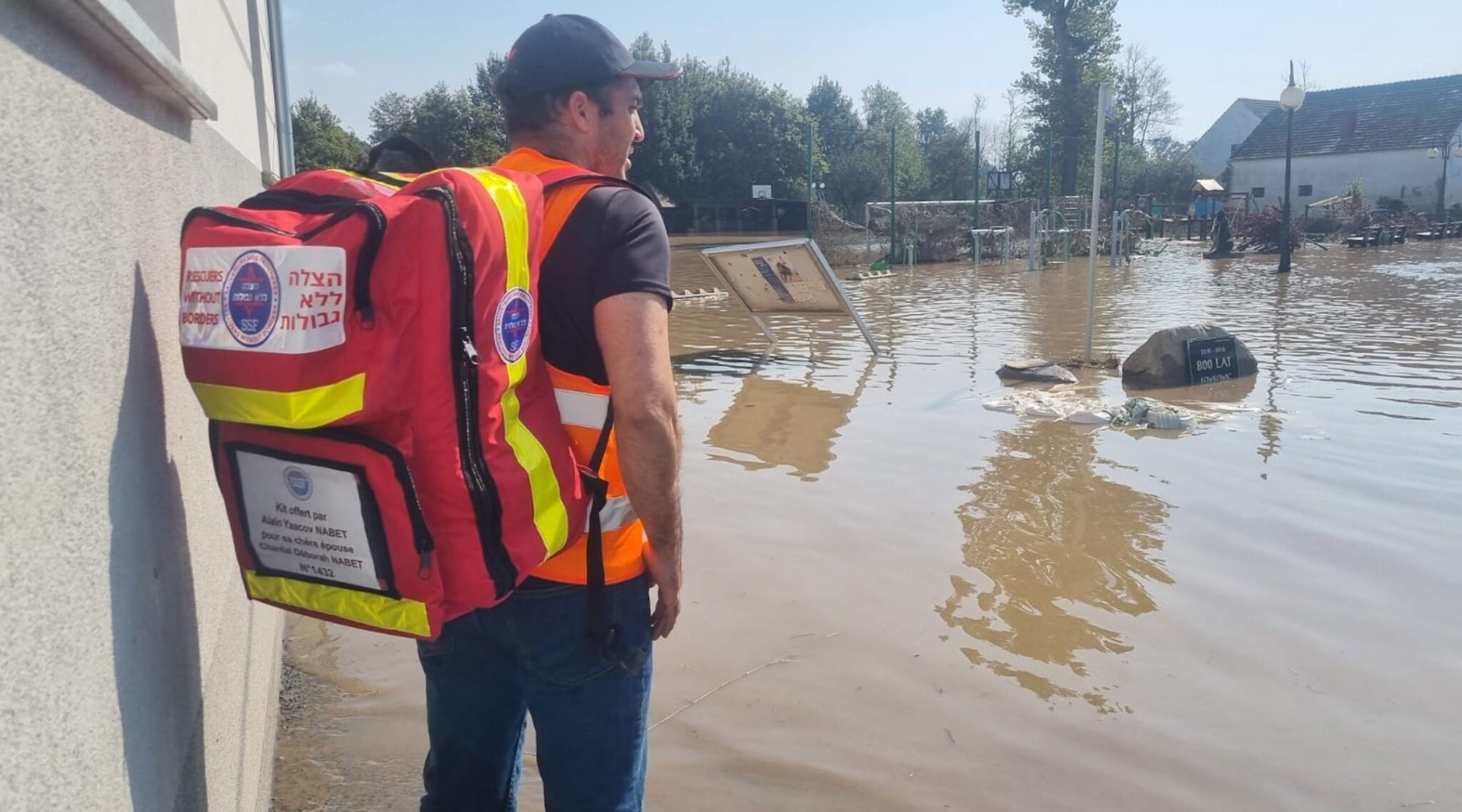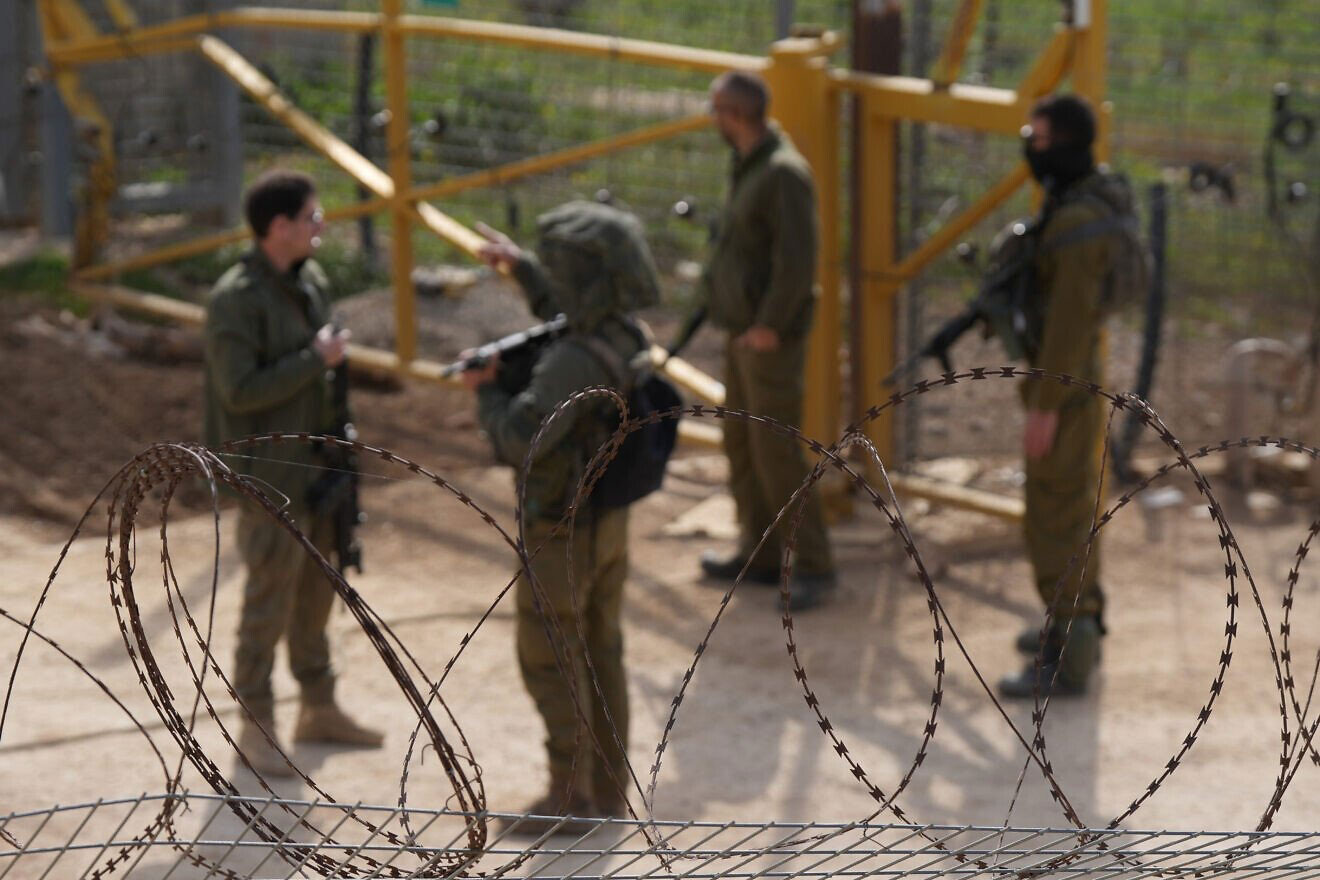Courtesy of JTA. Photo credit: Michael Schudrich
An Israeli volunteer with Rescuers without Borders gazes over floodwaters in Poland, Sept. 18, 2024
(JTA) — Jews from Warsaw and Israel are among the forces that have stepped in to support relief efforts as Poland battles its worst floods in decades.
Poland has deployed 14,000 soldiers to hard-hit areas in the country’s southwest, where water levels are expected to peak on Thursday. Torrential rain from Storm Boris has pounded large swathes of Central Europe, delivering five times the average rainfall for all of September in five days. The floods have destroyed roads and bridges, submerged neighborhoods and killed 23 people in Poland, Romania, Austria and the Czech Republic.
While thousands of people have evacuated their homes in Poland, soldiers and emergency workers have rushed toward the floods to fortify riverbanks and buildings with sandbags, deliver food and drinking water, rescue residents and supply medical aid.
Volunteers who joined those efforts on Wednesday included members of Hillel Warsaw and two doctors from Rescuers Without Borders, an Israeli-French medical relief group, according to Poland’s chief rabbi, Michael Schudrich.
Schudrich said he was amazed that doctors would come from Israel at a time when there are so many needs there.
“This is a real kiddush Hashem,” he told the Jewish Telegraphic Agency, using the Hebrew term referring to a sanctification of God. “And if you know me, you know I don’t say that lightly.”
Rescuers Without Borders, which sent doctors Devir Dimri and Gadi Ben Meir to Poland, was established in 2000 with the goal of providing first aid to Israelis and Palestinians during war and natural disasters. It has since grown into an international NGO.
Aid workers are bracing for a difficult day in Wroclaw, Poland’s third-largest city of 640,000 people, which is due for cresting waters along the Oder and Bystrzyca rivers on Thursday. The city suffered a disastrous flood in 1997. At the time, it was described as an event that happened “once every thousand years” — but residents are facing down another historic deluge just 26 years later, said Poland’s deputy climate minister Urszula Sara Zielińska.
“There is a clear cause to that and it’s called climate change,” Zielińska said to Euronews.
Wroclaw was called Breslau and was part of Germany until after World War II, when new borders were during the Potsdam Conference. Breslau was home to a major Jewish community and an important rabbinical school that was closed by the Nazis in 1938, shortly after Kristallnacht.
Today, the city is home to a small Jewish community that has at its center the White Stork synagogue, the only synagogue in the city that was not destroyed during the Holocaust. It was rededicated after a restoration in 2010 and is located next to the moat around the old city that is formed with waters from the Oder, whose banks are less than a kilometer away.





